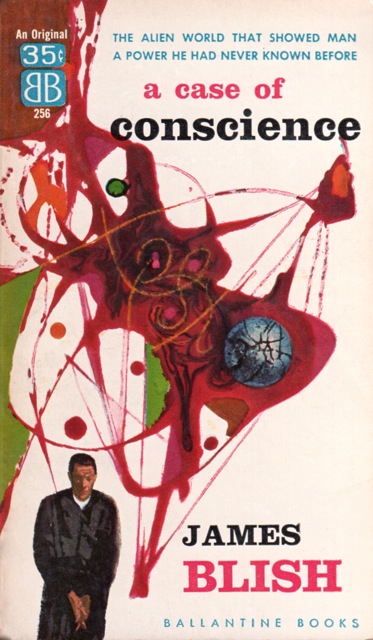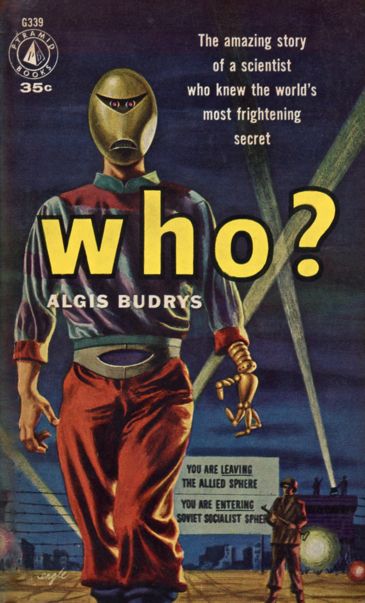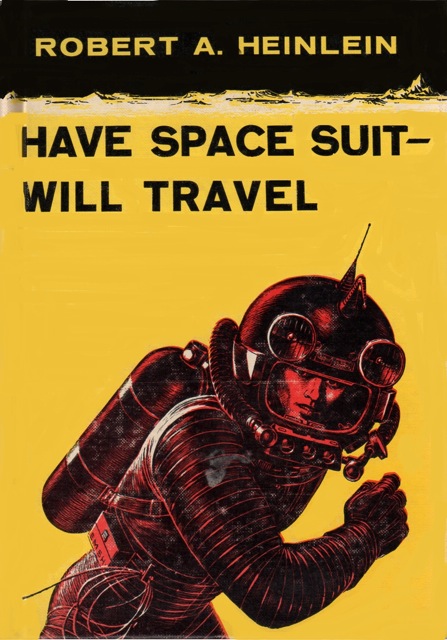The Nominees

The Enemy Stars by Poul Anderson

A Case of Conscience by James Blish

Who? by Algis Budrys

Have Space Suit Will Travel by Robert A. Heinlein

Immortality, Inc. by Robert Sheckley
The Actual Results
- A Case of Conscience by James Blish
- Have Space Suit Will Travel by Robert A. Heinlein
- Immortality, Inc. by Robert Sheckley
- The Enemy Stars by Poul Anderson
- Who? by Algis Budrys
How I Would Have Voted
- Immortality, Inc. by Robert Sheckley
- Have Space Suit Will Travel by Robert A. Heinlein
Explanation
Immortality, Inc. is the first book I’ve read by Robert Sheckley, and while it’s definitely dated, I enjoyed it quite a bit. The premise was fun and interesting, and the writing was fast-paced with a healthy dose of suspense. As for the stuff that felt dated, I actually think that added to the book’s charm, making it feel like a throwback to an earlier (if not quite innocent) time. I’ve often felt like if I’d had a choice in the time in which I’d been born, I would have chosen to be born about a hundred years ago, so I do occasionally like a good throwback to golden age sci fi. I’m definitely interested in reading more Robert Sheckley.
While I’ve enjoyed Algis Budrys in the past, I found it difficult to get into Who? though not due to any fault of the book or the author. The basic premise of the book is that a spy has returned from enemy custody, but he’s recieved so many prosthetics (including a prosthetic head and brain) that he’s practically a machine now, to the point where his handlers can’t tell if he’s the actual spy or someone trying to impersonate him. Back in the 1950s, the premise made sense, but that was before we knew about DNA, which renders the whole thing obsolete since a small blood sample and a DNA test would resolve the main conflict right away. I just couldn’t get over that, and the story itself didn’t really hook me, so I gave up midway through. Perhaps I should try it again, though.
The Enemy Stars was another Poul Anderson book that I just couldn’t get into. The characters weren’t quite as flat as in some of his other books, but they all still tended to blend together, and by about page 50 I still couldn’t tell what the main conflict of the story was. I love sprawling space operas just as much as the next sci fi reader, but the book has to have a plot, too. Less worldbuilding and more actual story, please.
Have Space Suit Will Travel was okay, but I didn’t really love it, and if I hadn’t picked up the audiobook, I probably would have DNFed it. It’s a book for young readers that feels like a book for young readers—in other words, a book that seems to talk down to the reader more than was necessary. It did have a lot of golden-age, 50’s era charm, and I enjoyed the world and the characters. Heinlein can definitely write a fun story. But with all that said, I don’t think this is one of his best—in fact, I wouldn’t even say it’s one of his best juveniles.
It’s been a while since I read A Case of Conscience, but I think the main reason I DNFed it had to do with its Malthusian premise and treatment of religion. Basically, it’s about a Catholic priest who is also an interstellar explorer, and how he wrestles with the question of whether a certain race of intelligent alien beings has souls. One of the aliens comes back to Earth and is instrumental in the complete collapse of society, which somehow ties into the philosophical questions, but that part wasn’t very clear to me. The story was very dry and cerebral, and I was never really sold on the central premise. Also, the religious character felt like he was obviously written by someone who isn’t religious (though I suppose I could be wrong about that—after all, I’m not a Catholic). But perhaps that was just me.
In short, while I wouldn’t say this was one of the best years for the Hugo, it had some good books, and none of the ones that made the ballot were particularly objectionable. With that said, though, I don’t think any of them stand the test of time.